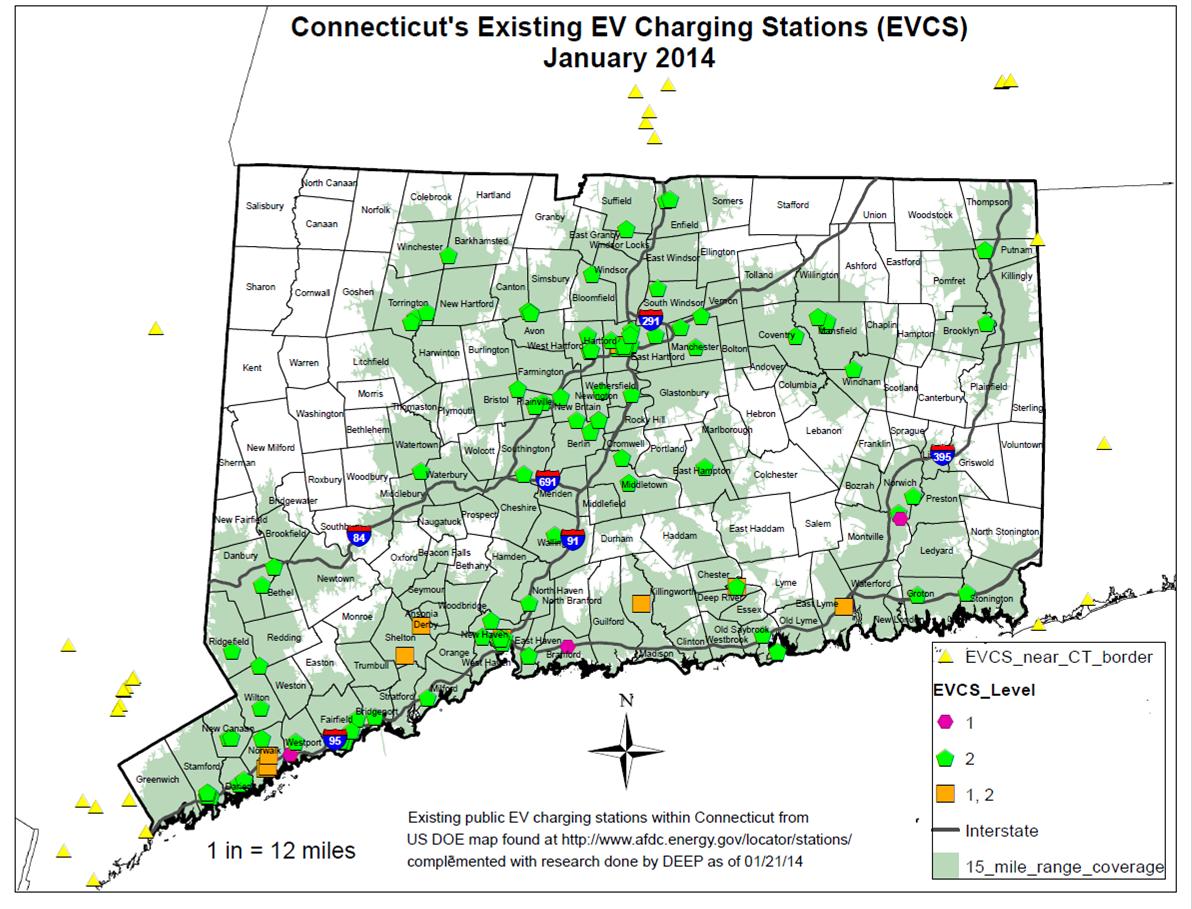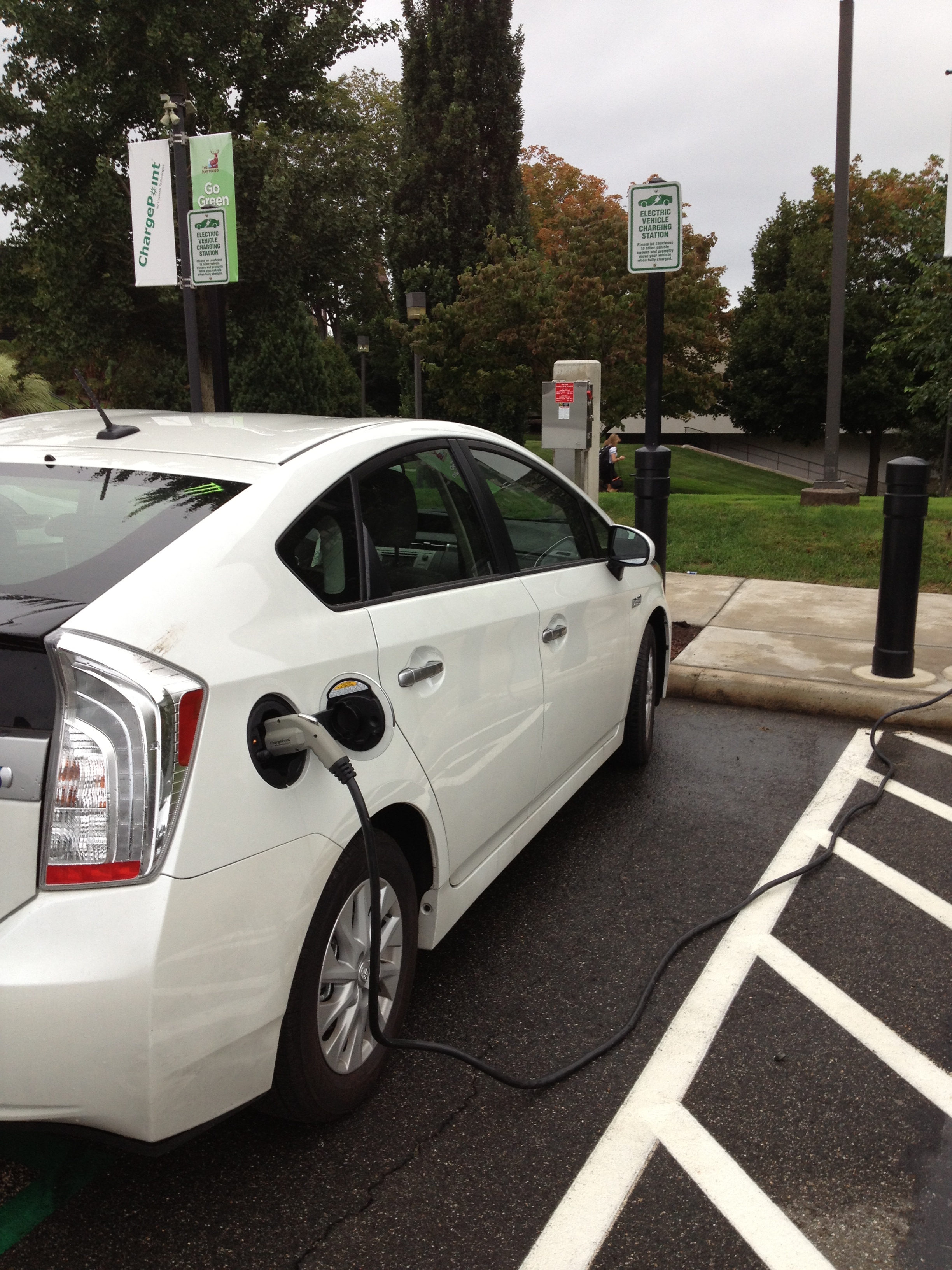Drive for More Electric Vehicles Continues to Gain Support, Funding in CT
/
The advance of electric cars continues, as does Connecticut’s encouragement of the trend.
The Connecticut Department of Energy and Environmental Protection (DEEP) and the Connecticut Automotive Retailers Association (CARA) will recognize state automobile dealers who sell or lease the highest number of electric vehicles (EVs) between February 1 and July 31, 2014 with the first ever “Connecticut Revolutionary Dealer Award.” One award will be presented to the dealer that sells or leases the highest number of new EVs – inc luding plug-in hybrids – and the other will go to the dealer who sells or leases the most EVs as a percentage of total sales during the period.
luding plug-in hybrids – and the other will go to the dealer who sells or leases the most EVs as a percentage of total sales during the period.
The announcement this week follows by just a few months the agreement by eight states representing nearly a quarter of U.S. auto sales – including Connecticut - to promote infrastructure and take other steps to increase the number of electric- and hydrogen-fueled cars, trucks and buses on the roads. The states involved are Connecticut, California, New York, Maryland, Massachusetts, Oregon, Rhode Island and Vermont.
By developing standards for charging stations, expanding financial incentives to buy the cars and lowering consumer electric rates, the states hope to make the vehicles more appealing, The goal is 3.3 million non-polluting cars on the road by 2025. Zero-emission vehicles include battery-electric vehicles and hydrogen fuel-cell-electric vehicles
State Funding Leads to More Charging Stations
State officials said that Connecticut is leading the nation in developing ways to encourage residents and businesses to buy electric and other zero-emission vehicles when making transportation purchases. Since July 2013, the state has provided $177,600 to 48 towns, businesses, and schools to build 75 electric vehicle charging stations throughout the state. It is estimated there are already more than 164 publicly available charging stations in Connecticut, including many located at auto dealers.
The Department of Energy and Environment al Protection provides an up-to-date list of all the charging stations in Connecticut, as well as those near the state’s border in neighboring states. Just over 50 of Connecticut’s 169 communities have at least one charging station. Both Hartford and New Haven each have nine stations. Stamford has six, Bridgeport has one, Waterbury has none, according to the January 2014 data from DEEP.
al Protection provides an up-to-date list of all the charging stations in Connecticut, as well as those near the state’s border in neighboring states. Just over 50 of Connecticut’s 169 communities have at least one charging station. Both Hartford and New Haven each have nine stations. Stamford has six, Bridgeport has one, Waterbury has none, according to the January 2014 data from DEEP.
Nationally, automakers are under pressure from the federal government to increase the average mileage of the vehicles they sell. Zero-emission vehicles are also supposed to make up at least 15% of sales by 2025. The Electric Drive Transportation Association told CNN Money said the market for electric and hybrid vehicles is growing steadily, especially as word of mouth spreads from satisfied customers.
Electric vehicles are “a ‘win-win’ for our state because they can cut costs for motorists while improving our environment and public health,” said interim DEEP Commissioner Ronald Klee. “Cars and trucks burning gasoline and diesel are one of the largest sources of harmful air pollution and greenhouse gases that contribute to climate change.” Expanding the number of publicly available charging stations in Connecticut is critical to meeting the goals of the eight-state agreement.”
Electric cars are powered entirely by an electric motor supplied by a large battery. Unlike traditional hybrid cars, electric cars do not have a gasoline engine; they are “fueled” by plugging into an electric charging station. A plug-in hybrid electric vehicle has an electric motor, an internal combustion engine and a plug to connect to the electrical grid.
The Connecticut Automotive Retailers Association is a statewide trade association representing over 250 franchised new car and truck dealerships primarily engaged in the retail sale of new and used motor vehicles, both foreign and domestically produced.
Last fall, Luis Ramírez, CEO of GE Energy Industrial Solutions joined Governor Malloy in unveiling the GE Electric Vehicle (EV) Solar Carport in Plainville. The project, one of the most expansive undertakings of its type in North America, uses GE’s new smart EV Charging Stations to charge electric vehicles. DEEP’s stated goal, former Commissioner Dan Esty said at the time, is to provide “publicly accessible EV charging stations within a 15-minute driving radius of any location in Connecticut.”
U.S. electric car sales have more than tripled from 17,000 in 2011 to 52,000 in 2012, according to data from the DEEP. Motorists bought more than 40,000 plug-in cars in the first six months of 2013, the most recent data available.






























